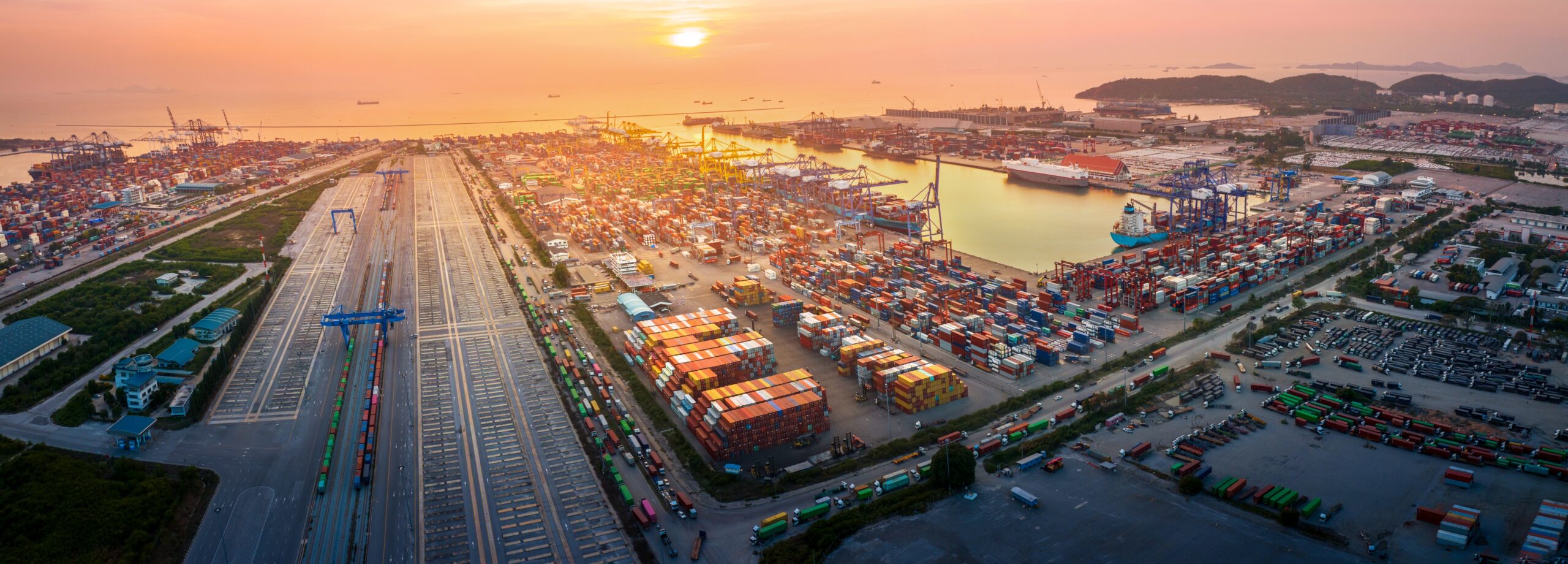1. Managing What’s in Stock
You know how annoying it is when you can’t find your favorite snack in the store? AI helps avoid that. It can predict when stuff is about to run out and reorder it before that happens. So, no more “out of stock” signs.

2. Predicting What People Want
AI looks at past sales and even stuff like weather to guess what people will want to buy next. This means stores can prepare in advance, making sure they have what you’ll probably look for.
3. Better, Faster Deliveries
AI helps find the quickest route for delivery trucks. It uses real-time info and maps to avoid traffic and save fuel, getting your online orders to you faster and cheaper.
4. Smarter Warehouses
Think of warehouses as the backstage of stores. AI helps make things run smoothly there, using robots and people in the most efficient way. That means your orders get processed faster.
5. Chatting with Customers
Ever chatted with customer service online? Chances are you were talking to a chatbot. AI makes these bots smarter so they can answer questions, track your order, and even suggest products you might like.
6. Saving Time and Money
AI can do repetitive jobs super fast, allowing people to focus on more important stuff. That saves both time and money, making everything more efficient.
7. Keeping an Eye on Everything
AI can track all parts of the supply chain in real time. That means businesses always know what’s going on and can fix issues before they become big problems.
8. Making Customers Happy
Quick deliveries and fast customer service make us all happy. AI helps companies deliver on these expectations, making sure you’re satisfied with your shopping experience.

Some Issues with Using AI
1. Privacy
AI uses a lot of data, and that could be risky. Companies need to make sure they’re not accidentally sharing your personal info.
2. Jobs
AI can do some jobs faster than people, which means some jobs might disappear. But, new kinds of jobs could also appear.
3. Costs
It can be pricey to set up AI systems, especially for big companies that already have older systems in place.
4. Data Quality
For AI to work well, it needs good data. Older systems might not have the kind of data AI needs, which can be a problem.
5. People Not Liking Change
Some people don’t like new tech, either because they’re worried about losing their job or just because it’s different.
To Wrap It Up
AI is changing the way we shop, get deliveries, and even how businesses run their supply chain. While there are some challenges, the perks like efficiency, cost-saving, and improved customer experience make it worth it.
So, yeah, AI is the future of shopping, shipping, and way more. It’s something we’ll probably see a lot more of, and it’s pretty cool to think about how it’s shaping the world.
FAQ for AI’s Impact on Supply Chain and Logistics
1. What is AI in the context of supply chain and logistics?
AI, or Artificial Intelligence, is like the brainpower behind smarter ways to manage how stuff gets from Point A to Point B. It also helps in knowing what items to keep in a store and how to keep customers satisfied.
2. How does AI help in inventory management?
AI looks at a lot of data—like past sales and current stock levels—to figure out when a store is going to run out of something. That way, the store can reorder items before they’re gone, so you don’t show up to empty shelves.
3. Does AI affect delivery times?
Yes, big time! AI uses real-time data to figure out the fastest routes for delivery trucks. That means you get your packages quicker and, often, cheaper.
4. Can AI take away jobs?
It’s possible. AI can handle repetitive tasks that people used to do. But it’s also creating new kinds of jobs that didn’t exist before. The key is for people to learn new skills to work alongside AI.
5. Is AI safe to use? What about my data?
Safety and data privacy are big deals. Companies need to be super careful not to let your personal info leak. That’s why they use security measures to protect your data.
6. Why is AI so expensive to implement?
Setting up AI systems can cost a lot because it often involves customizing the technology to work with a company’s existing systems. But as AI tech gets better and more common, it’s likely to get cheaper.
7. How does AI improve customer service?
AI chatbots can answer your questions, track your orders, and even suggest products you might like. This makes customer service quicker and more personalized.
8. What are the challenges of using AI in supply chain and logistics?
Some challenges include concerns about data privacy, job displacement, the cost of implementing AI, and sometimes people just being resistant to new technology.
9. How does AI make supply chains more transparent?
AI helps companies track what’s happening in real-time, from how much stock is left in a warehouse to how fast a package is being delivered. This helps companies make better decisions.
10. Is AI’s impact on supply chain and logistics all hype or is it real?
It’s real. Companies are already seeing benefits like faster deliveries, better stock management, and happier customers.
Hope this FAQ clears up some things about how AI is shaping the world of getting stuff from here to there and keeping everyone happy in the process!
Sources Analytics Insight
#AI impacts #supply chain #inventory management #logistic #demand forecasting #transportation #warehouse automation #customer service #efficiency #cost savings #transparency #implementation costs



Pingback: Ukraine Grain Export Drama: Hungary, Poland, Slovakia Go Rogue! - Linkdood Technologies